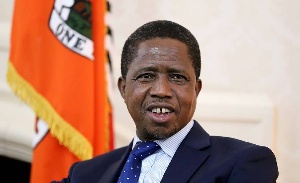Business News of Friday, 4 April 2025
Source: www.ghanawebbers.com
AI set to reshape accounting profession, not replace it
Colonel Nobel Carl Doe Dei-Alose, Chairperson of ACCA Ghana, spoke about AI's growing influence. He stated that we can no longer ignore artificial intelligence. Future accountants must prepare for an AI-driven workplace. Those who fail to adapt will struggle in the job market.
The accounting profession has focused on compliance and auditing. However, AI is automating many traditional tasks. This shift allows professionals to focus on higher-value services like financial strategy and risk management.
Martin Bortey, IT Business Consulting Partner at Ernst & Young, emphasized AI's impact on accountants. He noted that AI automates repetitive tasks like data entry and reconciliations. This enables accountants to concentrate on analysis and decision-making.
Machine learning improves fraud detection and compliance monitoring beyond traditional methods. Predictive analytics offers real-time financial modeling for deeper insights. AI-driven auditing tools can process large amounts of data quickly, enhancing accuracy.
Mr. Bortey shared an example from his firm using AI in audits. Generative AI tools allow users to upload various files quickly. The tool generates reports efficiently, saving time for value-creating tasks.
AI is reshaping Ghana’s financial landscape and is a global priority. The global AI market was valued at £190 billion in 2024 and may reach £1.5 trillion by 2035, according to Jonathan Lutterodt from KPMG.
A KPMG CEO survey revealed two-thirds of executives plan to invest in AI despite economic conditions. In West Africa, 80 percent of CEOs do not expect job cuts due to AI. Meanwhile, 93 percent anticipate long-term returns from their investments in AI.
Mr. Lutterodt urged accountants to take AI seriously as a strategic lever for cost efficiencies. With these changes, accountants need new skills to stay relevant in the profession.
Key skills include data analytics, digital finance, and strategic advisory expertise. Mr. Bortey stressed the importance of human oversight alongside AI capabilities. He encouraged a focus on value-adding services like risk advisory and financial strategy.
He concluded by urging attendees to view AI as a tool for progress rather than competition with humans. The future of accounting involves leveraging AI for better judgment and strategic decision-making.











